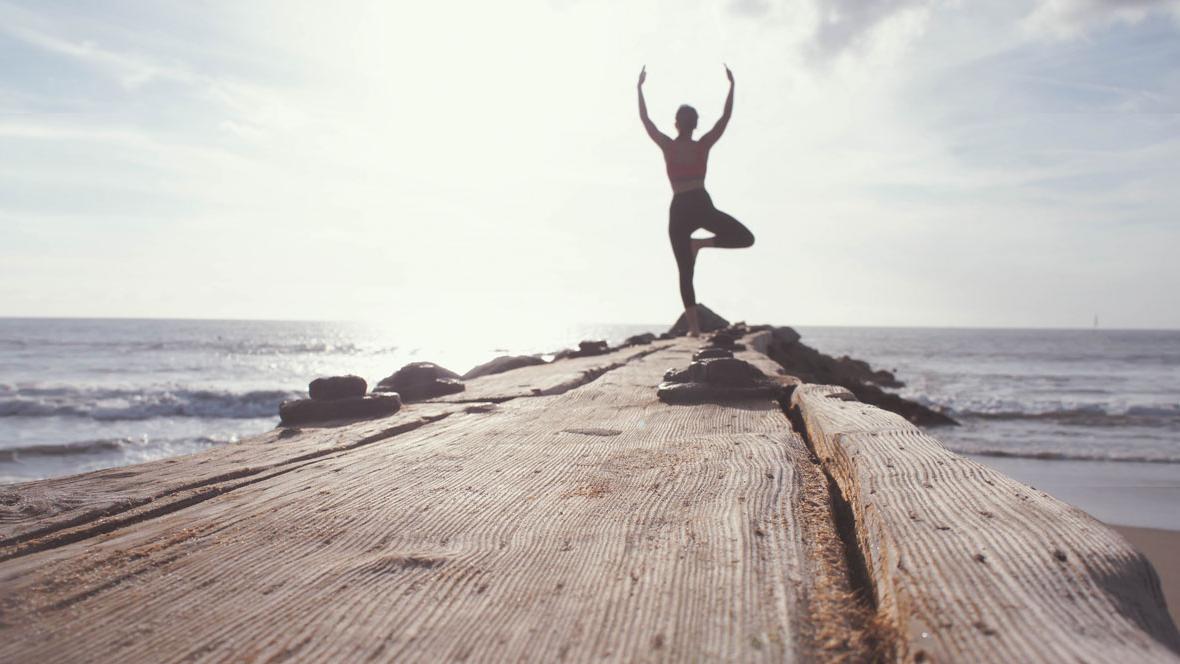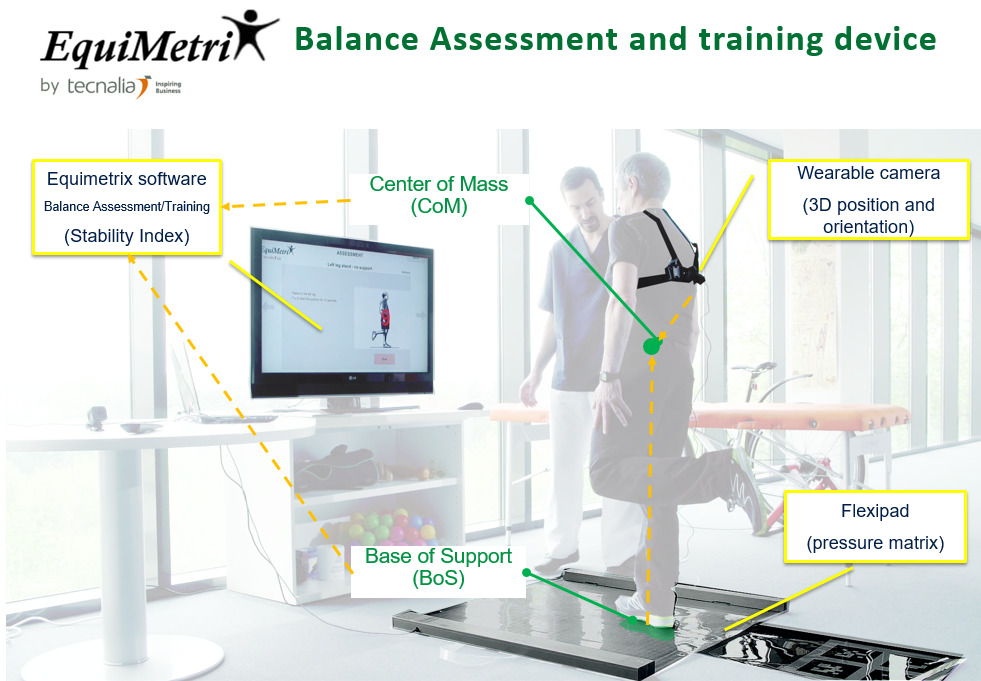Advancing towards new validated technological solutions for the assessment and training of balance in elderly people as a method to reduce the risk of falls

The BABEN program (BALANCE BENCHMARK) focuses research on new technological solutions for the assessment and training of postural control aimed at the early detection of the risk of falls and frailty in the elderly, and training or exercise of balance to prevent the risks of falling.
The result of this research is to validate a new instrumental equipment that facilitates the complete evaluation of balance / postural control allowing to analyze:
- The ability to maintain a posture
- Stability in transitions between postures
This equipment can be used in functional tests such as the Berg balance test, to obtain objective and quantitative measures of the level of stability or balance of the person. It seeks to offer a validated system, which has a lower cost than current equipment, and which is portable, simple to install and use.
Given the progressive ageing of our populations and the consequent increase in the number of elderly users, the BABEN program offers new validated solutions that will provide professionals and therapists with a more functional assessment of patient balance and stability, and that are also portable and portable. a cost not high. Solutions that make it possible to increase the number of patients assessed in the primary care centers themselves, favoring the early detection of loss of functional capacity and risk of falling and therefore making possible an early intervention to reduce said risks. All this will result in better maintenance of functional capacity in elderly patients and therefore an improvement in their quality of life and ability to perform activities of daily living.
The method and solution proposed is based on the technology and prototype developed by TECNALIA, called Equimetrix. This solution is developed with the objective of simultaneously measuring the location of the center of mass (CDM / CoM) and area of support of the feet (BDS / BoS); allowing to calculate an index of stability of the functional balance and offering evaluation and training functions (see detail of Equimetrix in the following image).

Postural control is often defined through the Center of Mass (CDM / CoM), the Center of Pressure (CDP) and the Base of Support (BDS / BoS) of the body.
Traditionally, both the CDM and the CDP are valued in a human movement analysis laboratory that has an optical, magnetic or mechanical system for measuring movement, and one or several force platforms. This infrastructure is not viable for its application in daily clinical practice; that is why the research in recent years has been oriented towards the development of portable solutions and a lower cost.
Equimetrix will represent an advance in the state of the art through the development of a solution that will combine the aforementioned parameters in the same system, in order to measure the relative position of the CDM - BDS outside a laboratory for the analysis of movement.
We seek to generate solutions that overcome the limitations that the devices currently available in the market present; as to:
- Cost, more reduced
- portability, ease of installation and commissioning
- quantitative measurement of stability or postural control
- that is contrasted or validated with gold standard equipment
The existence of a system like Equimetrix, duly validated, is nuclear to extend the evaluation of balance and postural regulation; evaluation that is decisive in the context of prevention and promotion of health in the elderly, reducing the fragility and foreseeing the occurrence of falls.
In addition, this solution for the evaluation of the balance also has its application during the training exercises, allowing to offer the person a direct (visual) feedback of the degree of stability to perform each exercise and also record this information to know the evolution during the process of training.
The BABEN program will take as a starting point the Equimetrix prototype available and the project 1 of the program is oriented to the evolution of the first prototype to improve its performance. This prototype will be evaluated and contrasted in the Porto Biomechanics Laboratory (LABIOMEP-UP), through project 2 of the program. This contrast will allow to validate the measurements and results offered by the Equimetrix system through "gold standard" equipment for motion analysis.
Thus, through the BABEN program, a properly validated system will be available and therefore valid for evaluation or evaluation.
Two entities participate in the BABEN program: TECNALIA, the Spanish technology center (responsible for project 1 and the program), and LABIOMEP (Portugal) responsible for project 2.
TECNALIA participates in this project through its Health Division; and more specifically the Neuro-rehabilitation area. The Neuro-rehabilitation area has been developing advanced medical devices for the treatment of neurological disorders (such as stroke) for a decade to compensate or accelerate the recovery of lost functions (such as mobility) in the elderly, people with disabilities, the chronically ill or people who have suffered an accident The area also develops clinical tools that make it easier for health professionals to assess and monitor the rehabilitation of patients. Within this line develops tools for assessment of the function or activity, including postural control, muscle activity, functional capacity, etc.
The project is oriented towards research in this line; that is, the research focused on postural control, the analysis of balance.
LABIOMEP; Biomechanics Laboratory of Porto (LABIOMEP-UP), is a Competence Center of the University of Porto (UPorto) focused on the study, teaching, dissemination and provision of services in Biomechanics. Leading the project 2 of the program BABEN contributes its profile of specialist in biomechanical analysis and the infrastructure and equipment of the Biomechanics laboratory that incorporates the systems of motion capture, force platforms, etc. with which the solution developed by TECNALIA will be compared.


